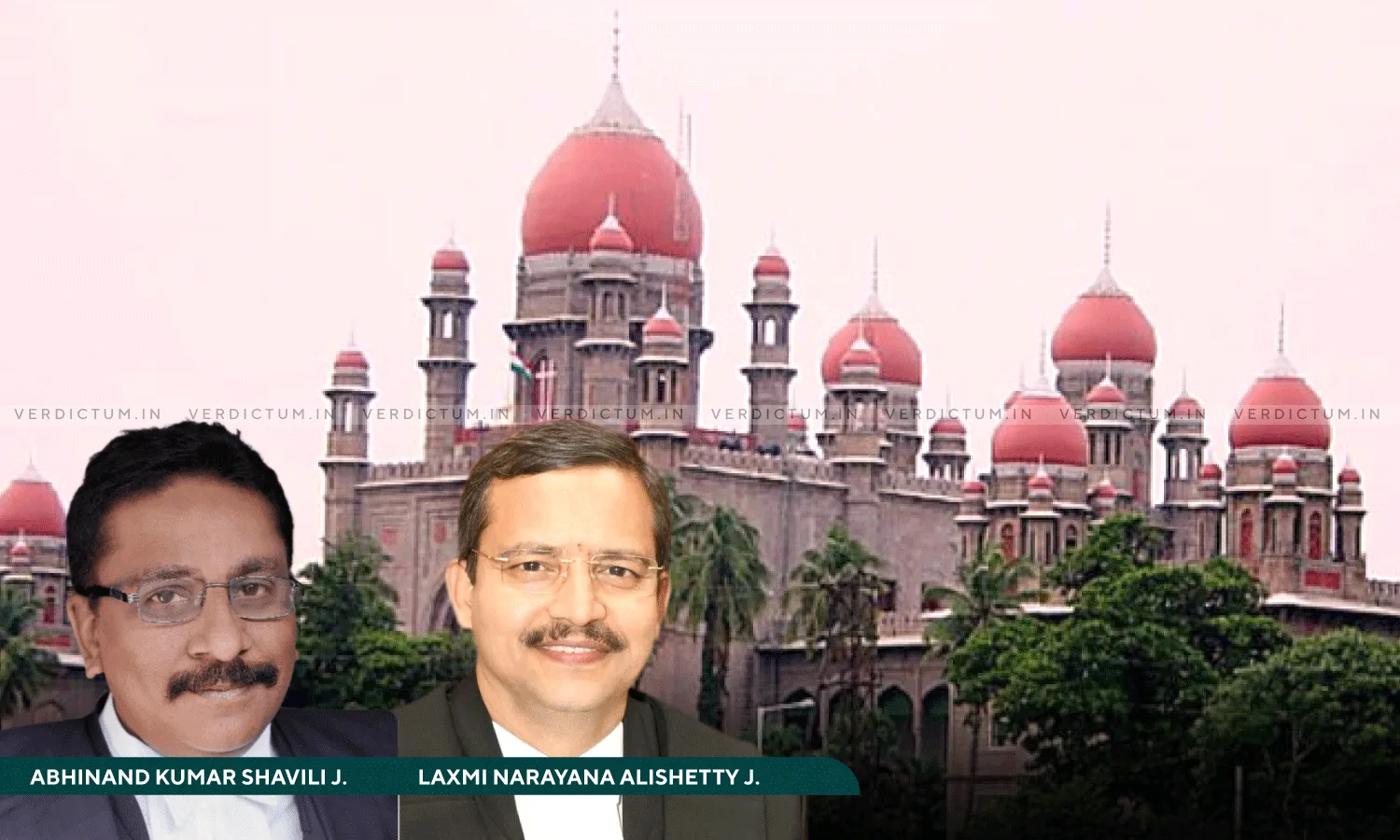Relationship Between Govt & Law Officers Is Purely Contractual & Don’t Hold Any Civil Posts; Their Appointments Are At Pleasure Of Govt: Telangana HC

The Telangana High Court held that the relationship between the Government and Law Officers is purely contractual and do not hold any civil posts and that their appointments are at the pleasure of the Government.
The Court held thus in a Writ Appeal filed by the Law Officers against the Common Order of the Single Judge.
A Division Bench of Justice Abhinand Kumar Shavili and Justice Laxmi Narayana Alishetty observed, “… it is clear that it is for the Government to choose the counsel of its choice and the relationship between the Government and Law Officers is purely contractual and they do not hold any civil posts. It is also clear that these appointments are at the pleasure of the Government which can be terminated without giving any reason.”
Senior Advocate Bramhadandi Ramesh appeared on behalf of the Appellants while Special Government Pleader Adepu Divya appeared on behalf of the Respondent.
Facts of the Case -
The Appellants were appointed as Government Pleaders, Special Government Pleaders, Assistant Government Pleaders and Additional Government Pleaders (in short, Law Officers) in various Courts of the District Judiciary on different dates during the years 2021 to 2023 for a period of three (3) years on payment of monthly honorarium. However, the Government had discontinued their services in June 2024. The Government requested the District Collectors concerned to pay one month honorarium to the Law Officers and make necessary in charge arrangements by placing eligible Advocates as in charge of the posts for a period of six (6) months or till regular appointments are made by the Government, whichever is earlier. The District Collectors were also directed to furnish panels consisting of five (5) Advocates in each panel forthwith for making regular appointment of new Law Officers.
In view of discontinuation of services of Law Officers, new Law Officers were appointed on a temporary basis to various Courts in the District Judiciary. Being aggrieved by the proceedings of discontinuation, the Appellants filed Writ Petitions seeking to set aside the Government Order and to direct the State to continue the services of the Appellants, in terms of their respective orders of appointment, with all consequential benefits including payment of honorarium, etc. The Single Judge dismissed the same, however, directed the Government to pay the arrears of salary, if any, and honorarium to the Petitioners and to other Law Officers whose services were disengaged. Being aggrieved by the Common Order, the Appellants approached the Division Bench.
The High Court in view of the facts and circumstances of the case, noted, “It is needless to note that engagement of services of an advocate by client is based on trust and confidence. It is the prerogative of the client to engage or disengage services of an advocate and if the client looses confidence and trust, he is at liberty to engage services of another advocate of his/her choice.”
The Court added that, an Advocate cannot insist a client to continue his/her services when the client has lost confidence, trust and expressed his unwillingness to continue his/her services, however, an Advocate is entitled to the fee for the services rendered to the client before his/her disengagement.
“In the same lines, when the Government loses confidence upon the Law Officers, it is entitled to terminate the services and appoint a new set of Law Officers and thus, the Law Officers cannot insist the Government to continue to engage their services. Therefore, learned single judge has rightly observed that Law Officers who are basically engaged to represent the Government and take care of the Government’s interest should enjoy the trust and confidence of the Government and thus, it would be unreasonable to deprive the Government of such freedom and discretion to appoint counsel of its choice”, it further said.
The Court concluded that the Appellants failed to point out any illegality or irregularity in the Order passed by the Single Judge and therefore, the Writ Appeal is liable to be dismissed.
Accordingly, the High Court dismissed the Writ Appeal.
Cause Title- Nagaram Anjaiah v. The State of Telangana


